Album review: Impressive details abound on Fossora, Bjork’s 10th album
Teeming with vibrant, open layers, the newest work from this Icelandic artist is another fully realised statement from a singer/composer who never sounds like anyone but herself.

Album reviews for week of October 14, 2022:

POP/EXPERIMENTAL
Fossora
Bjork
One Little Independent
During the brunt of the pandemic, Bjork relocated from her adopted country to the comfort of her homeland. That meant a seismic shift from New York City to Iceland, with the latter’s rugged natural contrasts coming to shape the chameleonic artist’s 10th solo album. Its twin thematic focus is mushrooms and soil, as reflected in the artwork and lyrics alike — but what’s most fascinating here are those contrasts, often manifesting in the interplay between hard-hitting, programmed beats and soft, fluttering orchestration. That’s especially pronounced on the opening Atopos, one of several tracks for which Indonesian dance duo Gabber Modus Operandi contributed beats for Bjork to sculpt into new forms. With her distinctive singing arcing dramatically high in the mix, she meditates on how hope will connect us all in the end. It’s a gorgeous, grabby introduction to this almost hour-long record, which flows and billows with a consistent sense of being untethered. Equally as striking as those sharply textured backdrops – which at times include a dozen flautists, six clarinetists and even a full choir – is the polyphony Bjork employs in the vocal arrangements.
Assorted guest singers show up to complement her, often closely shadowing her lead vocals before breaking out with more individual harmonies. That includes Norway’s Emilie Nicolas on Allow and Brooklyn artist Serpentwithfeet on Fungal City. Bjork’s son, Sindri Eldon, sings with her against harsh digital ruptures and a bright, uplifting string section on Ancestress, one of two tracks framed as tributes to Bjork’s mother, who died in 2018. The singer’s daughter, Isadora Bjarkardottir Barney, joins her on the closing Her Mother’s House, a bucolic comedown from some of its more techno-punctuated predecessors. So many impressive details abound here, from the sidelong trombone tones on Ovule to the Icelandic lyrics on the interlude, Fagurt Er i Fjoroum, derived from a traditional folk song. On Victimhood, the overlapping harmonies and humming recall Bjork’s almost purely vocal-based 2004 album, Medulla, while the amorphous instrumentals Mycelia and Trölla-Gabba are two of the most gripping tracks. Teeming with vibrant, open layers, Fossora is another fully realised statement from a singer/composer who never sounds like anyone but herself.
Doug Wallen
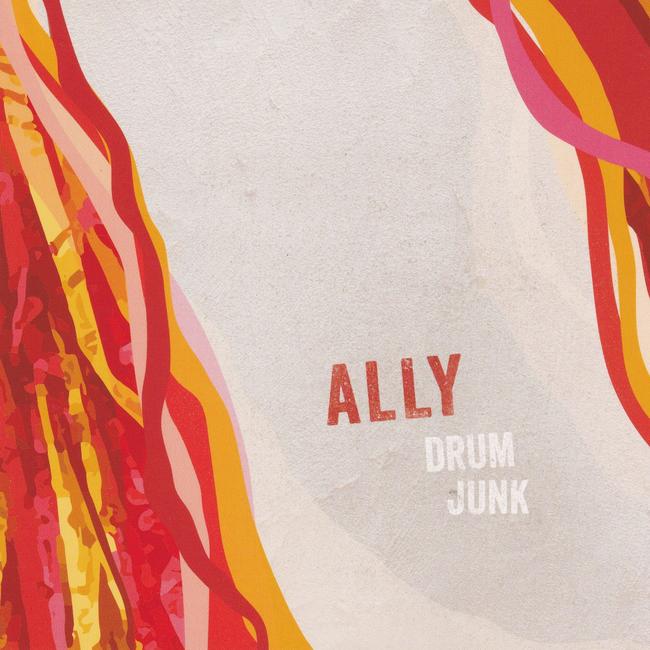
JAZZ
Drum Junk
Ally
Independent
This is a signature album from enterprising saxophonist Gai Bryant who, through entrepreneurial flair, has created a strong scene in Sydney presenting Afro-Cuban jazz. Her 18-piece Palacio de la Rumba is 10 years old, while her sextet Ally debuts here playing Peruvian-Brazilian jazz. It’s unusual in three ways. First, there’s no trumpet, and Bryant’s seven compositions are played by herself and trombonist James Greening, both contributing the sort of excellent solos one expects at this professional level. Second, there’s no drummer, so percussionist Giorgio Rojas, playing cajon, bongo, udu, guira and congas, has created, through overdubbing, many interesting rhythmic feels that are rarely heard. Third, Dai Moret adds spoken words on three tracks. The originals are enhanced by versions of Charles Mingus’s Goodbye Pork Pie Hat and Thelonius Monk’s In a Monk’s Dream. Two factors fortify this album: whenever the brilliant pianist Daniel Pliner comes to the fore the music blossoms; and the album is produced by Lloyd Swanton.
Eric Myers
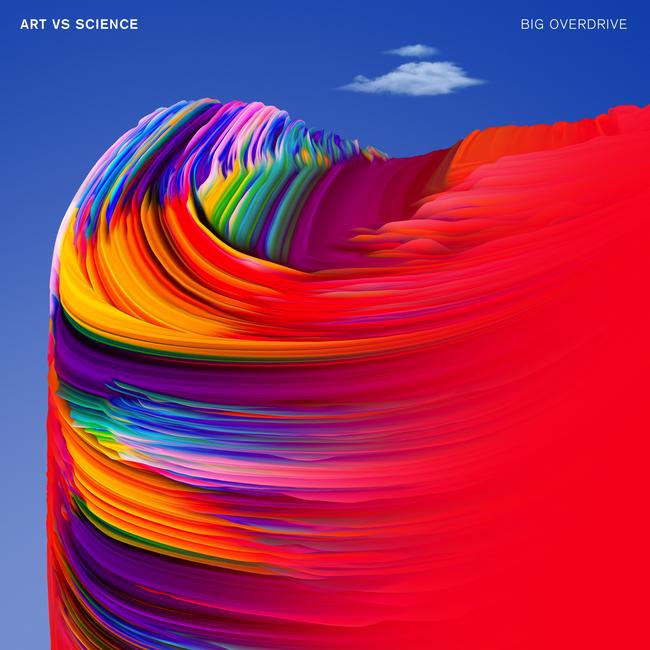
ELECTRONIC
Big Overdrive
Art vs Science
Independent
Parlez Vous Francais? That 2009 earworm will forever be ubiquitous with Sydney electronic three-piece Art vs Science, and its latest album – the first in seven years – is likely to create further joie de vivre. Mining a wealth of unreleased session material between 2012 and now, James Finn, Dan McNamee and Daniel Williams have compiled an energetic collection that reinforces the trio’s versatility and its default to the danceable, positive and fun. Songs that made the cut are “beautiful in their weirdness”. Tracks such as Check the Boombox reinforce this experimental streak and impress via punchy, funk-laced beats, cheeky vocals and playful instrumentation. One Other Thing and Everyday People are in-your-face party jams laced with thundering percussion. I Saw You is an uplifting, late-night affair, all whirring synths, brash beats and a soaring vocal hook. Dance has a glorious, throwback French Touch feel to it, and while a few interludes don’t add much, overall this is a seven-year itch that’s satisfyingly scratched.
Tim McNamara
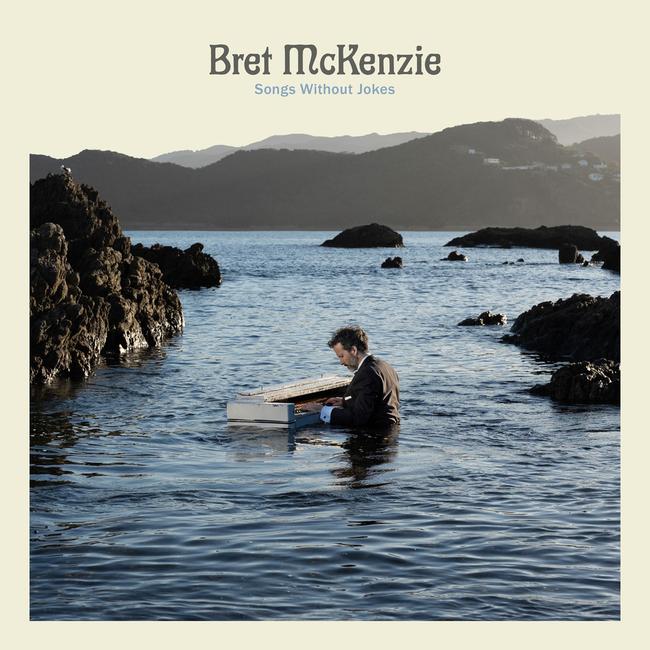
ADULT CONTEMPORARY
Songs Without Jokes
Bret McKenzie
Sub Pop
Arguably not since the Stone Roses naming its sophomore slump Second Coming has an album title set itself up more for disappointment. Until now, Bret McKenzie had written myriad songs with jokes as one half of New Zealand act Flight of the Conchords, nailing idiosyncratic humour while penning a bevy of memorable hooks. On his solo debut, however, McKenzie strips his own writing of its heart. Attempts to inject whimsy into grim subjects such as climate change, as done on This World and Up in Smoke, fall flat on their face. Elsewhere, corny single A Little Tune and watered-down Randy Newman impression on That’s L.A. leave plenty to be desired. The only real success story comes in the charming piano-rock of If You Wanna Go, where McKenzie channels a young Billy Joel. For the most part, not even a parade of horns can awaken this kitschy collection from the catacombs. Comedians making good, “serious” albums isn’t impossible – see Tim Heidecker and Tim Minchin – but McKenzie has evidently gone about this the wrong way.
David James Young
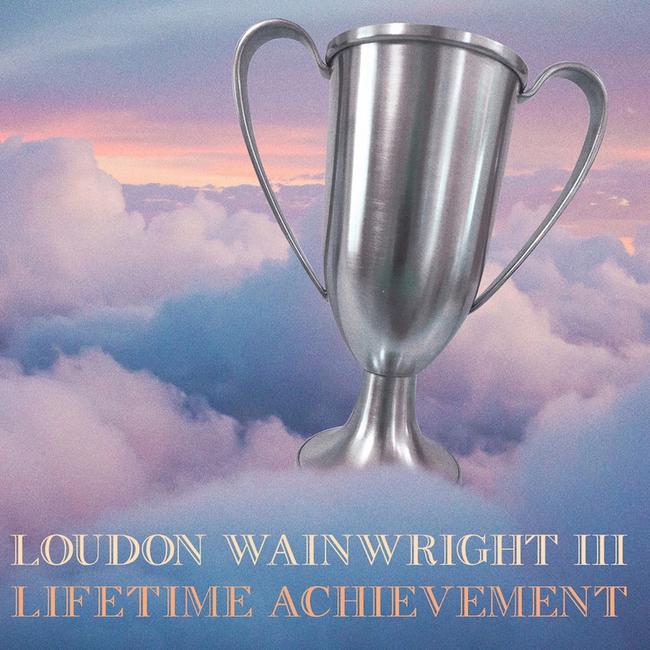
AMERICANA
Lifetime Achievement
Loudon Wainwright III
Proper/Planet
Loudon Wainwright’s first batch of fresh songs for eight years find the iconoclastic US troubadour in a deeply reflective state of mind, unsurprisingly given that he is now 75 at time of its release. His witty wordplays and sardonic observations on the human condition are now tempered by thoughts of mortality, though still angled through a familial prism. In the artist’s own words, this is a serious album that doesn’t take itself too seriously. These 15 songs come cushioned in a cornucopia of Americana styling. Pedal steel guitar lends a classic country lilt to the laid-back title track, a philosophical treatise on love. In a perkier piece, bluegrass fiddle and banjo permeate as he intones with glee: “I’ve got pieces of me strewn across the globe.” Shorthand verses are interspersed with Dylan-esque harmonica fills in a chirpy opener, which is followed by a couple of reflections delivered a cappella. A folk-rock track exhibits shades of the Band, while banjo and mandolin back a diabolically clever dialogue with the devil that’s fittingly titled Hell.
Tony Hillier
Album reviews for week of October 7, 2022:
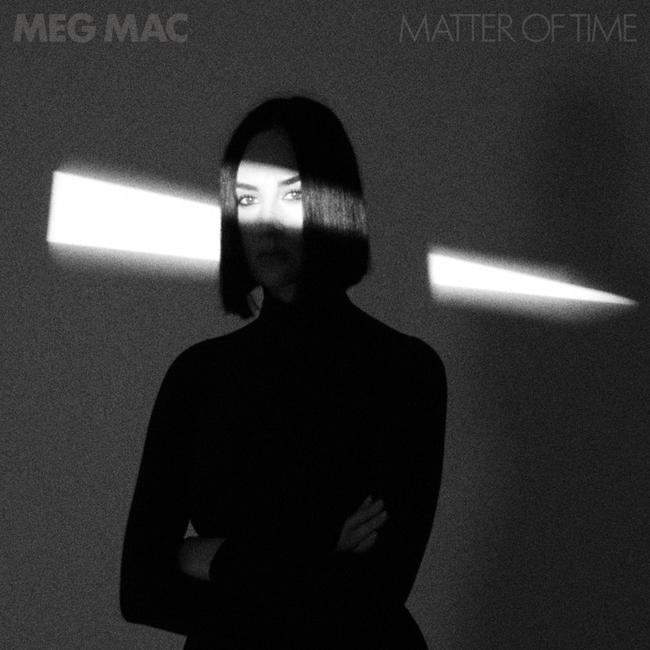
POP
Matter of Time
Meg Mac
Universal Music
The third album from Australian pop singer-songwriter Meg Mac was born out of a self-described meltdown. The album was to be released in 2020, but the artist born Megan McInerney says she “snapped” right before the first single was due to come out and decided to scrap the entire release. Instead, she relocated from Melbourne to the NSW Southern Highlands and started afresh to write something she felt would be more authentic. McInerney lived remotely, in what she describes as the “cute little cottage that saved me”, in the company of her boyfriend and two adopted cats, and committed to that risky decision to start afresh and create a “better album”. Aptly titled Matter of Time, the result is a vulnerable and powerful exploration of love, grief and self-discovery across 10 tracks. It’s arguably the most honest and glaringly autobiographical work yet by McInerney, now 32, and one that delves deep into the psyche of a musician reworking and reframing her sound across the course of the pandemic. Opener Is It Worth Being Sad is a compelling, catchy, soulful ballad that traverses her impressive vocal range, featuring robust belting on the chorus melody and angelic backing harmonies.
McInerney, who shot to national prominence after winning a Triple J Unearthed award in 2014, has a highly recognisable voice with a slightly nasal timbre to it, and on stripped-back songs such as piano ballad Letter the strength of that instrument truly shines. Only Love grooves with a staccato bass line, Something in the Water is propelled by a churchlike organ, and On Your Mind booms with a punchy melodic line that sits at the top end of her chest register. Don’t You Cry is a stunningly soft tune accompanied solely by guitar and uplifting harmonies, while titular track Matter of Time pulses with electronic percussion. On album closer Head on the Pillow, McInerney defiantly repeats the line “I won’t look back, no I won’t look back” against cinematic string orchestration and explosive percussion. With contractual obligations at stake, as well as numerous financial and reputational issues, it takes a lot of courage for an artist to decide to pulp an album right before its release and start again. But for this bold singer-songwriter that risk has certainly paid off, both artistically and commercially: last month, McInerney celebrated the rare feat of an ARIA No.1 debut. From a meltdown to her first chart-topper, it was only a matter of time.
Emily Ritchie
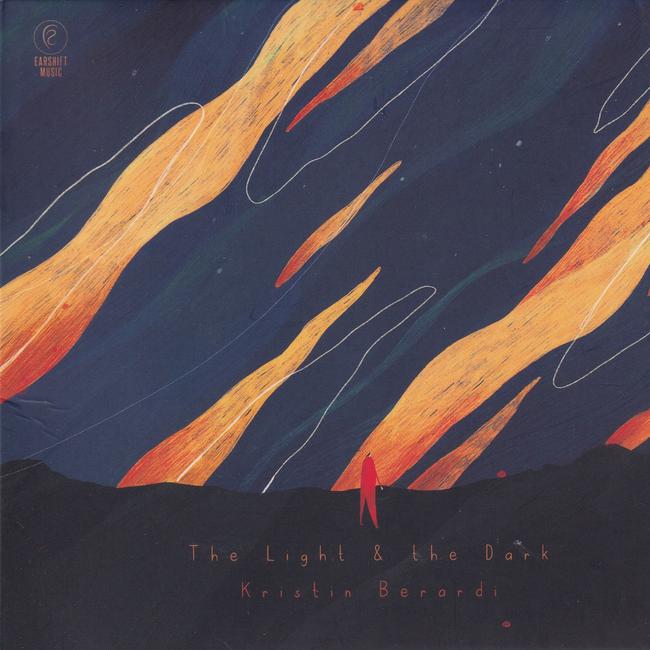
JAZZ
The Light and the Dark
Kristin Berardi
Earshift Music
This is a remarkably brave and revealing album from an immensely talented Australian jazz singer. In nine of her compositions, some dealing with the angst she has experienced in intimate relationships, Kristin Berardi bares her soul in a way that invites comparison with Joni Mitchell (think A Case of You). Her quartet, playing with typical New York intensity, brings Berardi’s music to life with extraordinary brilliance and empathy: Ingrid Jensen (trumpet), Miro Sprague (piano), Marty Jaffe (double bass) and Jerome Jennings (drums). Guests on two tracks are Australians Troy Roberts (saxophone) and Sam Anning (bass), the album’s co-producer. Berardi’s lyrics, a cry from the heart, are commendably ambiguous, but still meaningful. Two of many highlights are He Was a Loaded Gun, an expose of the personality of a participant in an abusive relationship; and Australian Mark Sholtez’s deeply sad song What You Want, beautifully performed by Berardi and Sprague. Note throughout Berardi’s formidable ability as an exponent of the wordless vocal.
Eric Myers
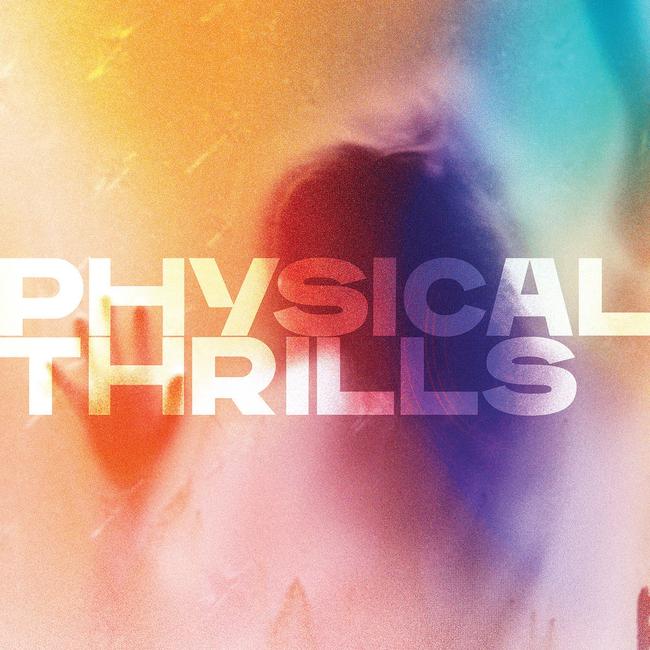
ALTERNATIVE ROCK
Physical Thrills
Silversun Pickups
New Machine
When Silversun Pickups first caught ears on rock radio circa 2006, the Smashing Pumpkins comparisons came thick and fast. In a way, this US quartet has spent much of the past decade outrunning its initial influences – only to then find itself in the middle of nowhere, forced to recalibrate its identity once again. This, the band’s second LP with Butch Vig behind the boards, matches its groove-oriented alternative rock with the latter’s pristine production palette. Album No.6 sports bursts of vitality that create some career-best gems, such as the piano-driven Hereafter (Way After) and the slicing guitar and bass back-and-forth of System Error. Bassist Nikki Monninger makes her lead vocal debut on the quiet, pensive Alone on a Hill, and she matches the song’s tenderness with an understated, emotive performance. Such stylistic deviations ensure that the moves made here were not in vain. Despite some back-end bloat and wholly unnecessary interludes, there are still some well-thought-out twinkles in the band’s eyes.
David James Young
Album reviews for week of September 30, 2022:
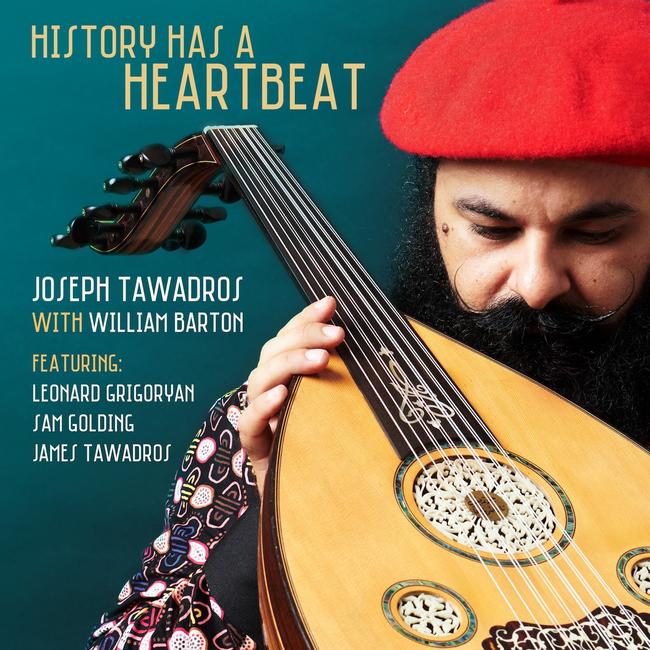
WORLD
History Has A Heartbeat
Joseph Tawadros with William Barton
Independent/Planet
If history does indeed have a heartbeat, Joseph Tawadros assuredly has his finger on the pulse, both figuratively and physically, as he maintains a prodigious pace in an endeavour to establish the oud — the centuries-old Arabic lute — in the vanguard of the 21st century music scene here and overseas. With his latest set, the Egypt-born and Australian-raised maestro, who’s still in his 30s, extends an astounding sequence of album releases to 19 consecutive years while amassing six ARIA Awards in a decade. Tawadros’s new 26-track odyssey is testament not only to his superlative playing and production capabilities, but also to his capacities as a composer, arranger, collaborator and bandleader. With it, this UK-based muso also breaks new ground yet again by bringing the ancient cultures of the Arabic world and Australia together in the contemporary arena via a unique dialogue with yidaki master William Barton. Tawadros’s desire to draw on Indigenous culture reaches a celestial peak in the symbiotic harmony between oud and didge in Outback Gypsy and in The Redfern Speech, the latter inspired by Paul Keating’s landmark 1992 address, and in the related track Terra Nullius.
With Yer Gammin, Tawadros and Barton strike up a more playful up-tempo groove. In both The Gentleman — a moving memorial to the late arts patron Martin Dickson — and in A Return To Country, Leonard Grigoryan renders sterling support on classical and 12-string guitars. In The Past Is Present, James Tawadros gives his big bro excellent percussion accompaniment on riqq, the tiny Middle Eastern tambourine on which he’s without peer. In Luli, James’s bendir frame drum provides a strong pulse as oud and guitar take impressive solos. Elsewhere, Sam Golding’s classical and mariachi-informed trumpet and flugelhorn fills add poignancy, most memorably in the reflective I See You In The Stars. Shebu, a paean to the artist’s current base in London’s colourful Shepherd’s Bush district, is imbued with suitably jazzy feel, while Distant Soulmate is a comparatively sombre solo tour-de-force punctuated by deft harmonics. An admirably all-Aussie affair, this is a truly engrossing instrumental album that captures the gamut of emotions, from sorrow to joy.
Tony Hillier
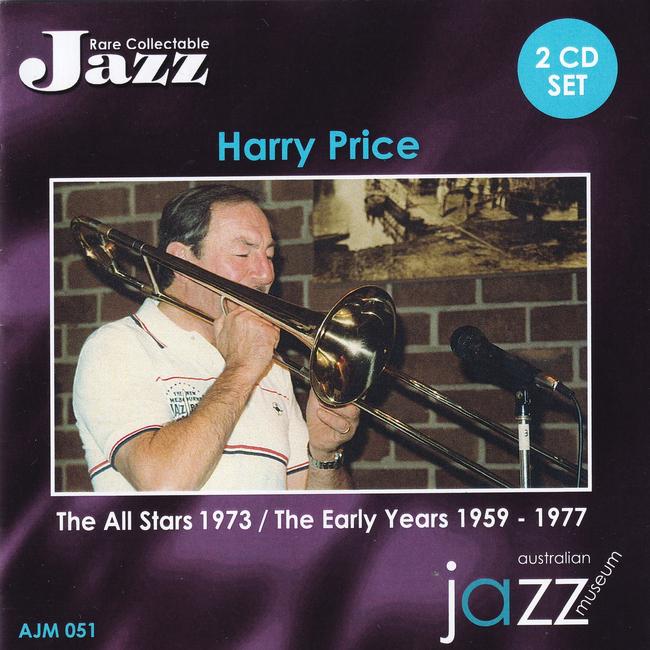
JAZZ
The All Stars/The Early Years
Harry Price
Australian Jazz Museum
This double-album from the AJM is a gem. The excellent Melbourne trombonist Harry Price, now 92, played with many bands over a long career, including his All Stars, a pick-up group recorded in 1973. He also played with three highly significant traditional jazz bands, featured here: Len Barnard Jazz Band, Tony Newstead & His Gang and Frank Johnson Jazz Band. Many legendary musicians can be heard over two hours, but it’s the Barnard band, recorded January 10, 1959, which provides most interest. It features trumpeter Bob Barnard, then 26, in top form: note his first solo in Ellington’s composition John Hardy’s Wife. Barnard plays with an authority characteristic of Louis Armstrong, setting the music alight. His competitors Newstead and Johnson were also celebrated trumpeters in their own right, but Barnard shows clearly why he’s regarded as the most gifted traditionally-based trumpeter Australia has produced. Thanks to Ken Simpson-Bull’s remastering, the sound is superb.
Eric Myers

POP/ROCK
Chaos In Bloom
Goo Goo Dolls
Warner
What does the Goo Goo Dolls want in 2022? Does the New York group want to reclaim its pop-rock throne from the 1990s, or does it want to assimilate within pop’s current climate? The answer remains unclear upon listening to Chaos in Bloom, its 14th album. While 2019’s Miracle Pill featured flashes of ambitious pop excellence, this work is almost aggressive in its artificiality. Any time the ghost of the band’s past floats by on songs like Going Crazy and War, it’s then immediately blunted by a glob of glossy production and heavy reliance on formula. Lead single and opening track Yeah, I Like You is a mid-tempo rocker where frontman John Rzenik falls for a celeb (“the queen of generation fame”) in some sort of Notting Hill forbidden romance. Fine, but one of the band’s biggest hits (Name) already did this 10 times better. Between this, the tawdry piano ballad You Are The Answer and lead vocal turns from bassist Robbie Takac that feel like charity, you’re not left with a whole lot that resembles the band that once was, sadly.
David James Young

POP
Izzi
Isabella Manfredi
Island Records
One of rock ’n’ roll’s unwritten rules is never get personally involved with a bandmate, and ex-Preatures singer Isabella “Izzi” Manfredi’s self-described “emancipation” album is about breaking up and moving on in more ways than one. Yet her solo debut is also a curiously retro-sounding pop concoction, drenched in ’80s-vintage synths and drum machines, with vocal echoes of the same era and earlier. The languid funk of Naive recalls former Prince acolytes Wendy and Lisa; Birthday Wish channels the Bangles’ Susanna Hoffs, and the double-tracked harmonies of Playing True sound uncannily like ABBA. Sleepwalking is almost a parody of Fleetwood Mac’s Dreams, though elsewhere there’s enough of Manfredi’s distinctive upper register to stake out her own territory. Tonight’s Flight, on which she accompanies herself on piano, allows her voice full rein; likewise Portrait, sung in the second person, where the artist reveals herself on canvas at one remove. Perhaps by album No.2 she’ll have left the past behind.
Phil Stafford

INDIE ROCK
When the Wind Forgets Your Name
Built to Spill
Sub Pop
Built to Spill mainstay Doug Martsch sounds all too comfortable on the American indie rock institution’s first album in seven years. Backed by bassist Joao Casaes and drummer Le Almeida from the Brazilian band Orua, Martsch adds a breezy psychedelic vibe to his usual expressive guitar playing. His pinched vocals and craggy riffs aren’t so foregrounded here, but rather slip into a natural groove with that new rhythm section. These nine songs flow well together, yet don’t overly stand out on their own. Despite opener Gonna Lose letting fly one of Built to Spill’s signature lurching hooks, this Martsch-produced outing cruises along without a great deal of urgency. Seventh track Never Alright finally kicks into a higher gear, but that momentum is soon lost with the closing Comes a Day, an eight-minute finale that’s dampened by a flanger effect and other mundane choices. While it’s nice to have this band back in the studio at last, the results are only intermittently satisfying.
Doug Wallen


To join the conversation, please log in. Don't have an account? Register
Join the conversation, you are commenting as Logout